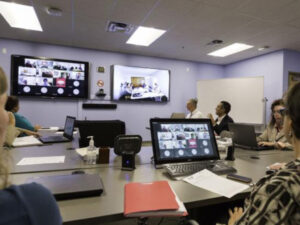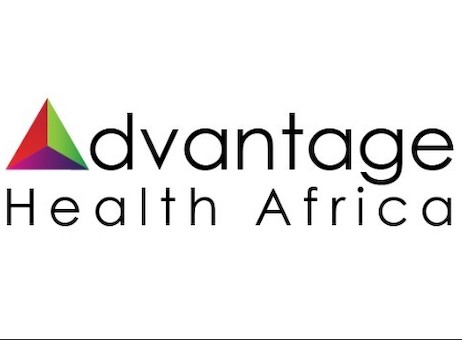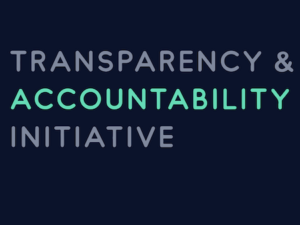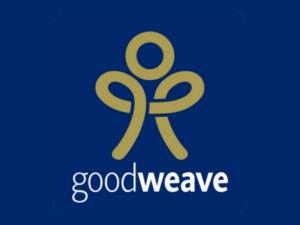
Project ECHO Expands Reach Of Medical Specialists In Rural New Mexico
In many rural communities, access to specialty healthcare represents the biggest health challenge. Since 2003, a groundbreaking initiative called Project
Advantage Health Africa provides health solution technology and connects pharmacies, improving access to medicine and quality healthcare in Africa.
Abimbola Adebakin of Advantage Health Africa spoke with Jessica Kantor on April 12, 2023. Click here to read the full conversation with insights highlighted.
Jessica Kantor: Can you please introduce yourself, the organization that you work for, your role with the organization and the problem that you are addressing?
Abimbola Adebakin: My name is Abimbola Adebakin. I am the founder and the CEO of Advantage Health Africa, which is based out of Nigeria. We’ve identified gaps in access to medicines. There are some areas that have quite a large number of licensed pharmacies and there are many areas with no pharmacies. Now, where the pharmacies do exist, sometimes their inventory is limited and you just cannot get the medication you need.
For supplements and things of that nature, that’s fine, you can always make due, but for life-threatening conditions where they actually need medicines, especially prescription medication, that becomes an issue. We’re not an online pharmacy that just sells supplements. We actually deal with prescription meds. When people are searching around and can’t find their medication, we bring it to them. We’ve combined some health insurance with it. We’ve combined last mile provisioning. We have an aggregation of more than a thousand pharmacies across the country, and we also combine it with technology and logistics management.
Jessica Kantor: How do you get into contact with the individuals who need your services? Are you partnered with the pharmacies themselves? Are you partnered with the government? Do you have signs up in neighborhoods? How do you engage with them?
Abimbola Adebakin: Two things. Individuals come to us. We’re made known via web platforms, social media, and so on. So you can find us and make a request. You can send an email, you can use USSD, you can use SMS. Any low tech means or even our high-tech platforms. That’s half of it. The other half is that we’ve partnered with health insurance companies, those who are the payers. We fulfill medication needs on their behalf. We’re increasingly getting into more partnerships with health innovators. So someone sets up a telemedicine platform and we fulfill the medication. Someone sets up an elderly care or home care system, we fulfill the medication. We’re that backend for a lot of innovators.
Jessica Kantor: How exactly are you measuring success?
Abimbola Adebakin: We measure success in five ways. One, of course, is our ability to fill the orders which we’ve measured over the years. The service I’m describing is actually called My Medicines, which ensures we get at least 95% of the orders correct. That’s one way. Another way is our spread across the country. We’re actually in 33 of the 36 states across Nigeria. That’s the deepest and widest spread that I think anybody has in health tech right now in Nigeria.
The third is our speed to deliver. When we started, many of the e-commerce platforms were the benchmarks we could use and they delivered in days. We deliver in hours. We’ve measured and tracked going down from six hours to four hours, and most recently our best is two and a half hours on average. Fourth, our relationships with pharmacies. The more pharmacies that we can sign on, the more spread. But it’s linked. The fact is that we’re also creating access to markets for the pharmacies. And the last way we measure impact is feedback. When people come back, when partners come back and they increase their volumes with us, basket size and repeat purchases, all of that is feedback for us, and we’re measuring success through that as well.
Jessica Kantor: How did this model come to fruition?
Abimbola Adebakin: I started the organization in January 2017 and by October we launched. It was important for me to bring models that had been used in other sectors. I’m a pharmacist, but I hadn’t worked as a pharmacist for a long time. In coming back into my industry, I brought models I had used in the financial services sector as well as in the agri sector. In agri, I had done work in creating hubs. And in financial services, I’d done work with electronic channels. Combining those, it was clear to me that it was important to set up something like this. Many others have mimicked and copied, but almost six years ago there were none.
Let me give you context. In Nigeria we have over 200 million people served by less than 5,000 pharmacies. By comparison, in France you have a population of about 66 million served by 22,000 pharmacies. So we have a dearth of pharmacies. The second issue we have is that the pharmacies are not as well-funded or systematically set up as you would like them to be, so there are a lot of issues with medications being out of stock. They don’t have everything. You might be able to fill a prescription, maybe it has six items, and you can fill three. And that creates a latent poor medication compliance. If you know a lot about treatment failure, over 50% of treatment failure comes from medication issues, either non-compliance or poor use or non-completion of use. So this is addressing treatment failure and therefore addressing mortality and mobility.
Jessica Kantor: How is your organization able to gain access to those medications when pharmacies are not?
Abimbola Adebakin: We aggregated a thousand pharmacies in 2018. We were the first to aggregate them. Now we’re building the technology that would integrate their backend so we can have a clear line of sight. We also got the National Post, like the Royal Post in the UK, to partner with us to pick up medicines and deliver. So we don’t just have the inventory, we also make sure it gets to you wherever you are. All you need to do is place your order, send us the prescription and we’ll bring the medicines to you. Those are things that were new at that time. For example, it was the very first time that the National Post was partnering to pick up. They normally just receive and deliver, but we were challenging them to pick it up from the pharmacy and take it to end users. That was new — partnership with pharmacies and partnership with logistics through the National Post. But now we’ve done so many other things to build up the system.
Jessica Kantor: Do you have an example that illustrates the impact of your work?
Abimbola Adebakin: We have so many examples, but I just used this one in particular in a paper published by Bayer Foundation. There’s a grandma based in a town in Ogun State, which is like the distance from Oxfordshire to London. A bit of a distance. Her son, a farmer, typically travels from his base all the way to Lagos every month without fail to buy her medicines, just to be assured of genuineness and good pricing. But during COVID, a lot of that was disrupted. And post-COVID, his routine was also changed. So her neighbor told her that her daughter just sends her medicines to her. She didn’t know how, so they reached out to us and we did the same for that woman. Our services were 20% less than the amount of money he normally spends to travel, so we reduced their costs. We reduced the time, because we delivered within 24 hours, because it was out of state. And all her medications were intact. She had glaucoma, diabetes, and arthritis. These are medicines she can’t miss. We have many examples of that nature. We have doctors that can’t fill orders for their patients and they reach out to us. During COVID, lots of people’s lives were disrupted and we came right in to help. We did a lot of interstate deliveries and went to rescue areas.
Jessica Kantor: Every social innovator learns from things that don’t work as much as they learn from things that do. What’s been one challenge that you’ve faced that was an important lesson that you learned about how to do things?
Abimbola Adebakin: Well, the analogy that comes to my mind is a duck that is flapping like crazy underwater but looks smooth above. We still do a lot of things manually. Even the tech that we’re building now is one of the lessons we’ve learned. Identifying where the medication exists, based on proximity, price, and availability, is something you need software to do. We do not have that presently. So for us, it’s been a learning curve. Doing this manually, getting people to say, oh, I have that inventory, but not that one, and then combining. It’s a heavy lift behind the scenes, but we look smooth to the consumer. All they know is their medication comes. Being able to connect the dots in that regard for us will hasten our fulfillment time. It would also help us put in place quality assurance processes that we are only able to pick from those that have passed through.
Before, if you are looking for medicines everywhere, there are new pharmacies that you will encounter, but now they have to pass through rigor to remain in the network. There’s a lot we’re doing in quality. We became ISO 9,001 certified, and for us that was important because you also need to pass on that quality standard to all of the fulfillment pharmacists. The third is the challenge we have with payments. It’s a very low income country, relatively, and there are quite a lot of people that still can’t pay for medicine. We’ve created a financing solution, which is picking up very slowly. That’s a big challenge for us now. We’re hoping that we can see this show proof of concept and then get it to scale. That’s one of the current challenges we’re still working with.
Jessica Kantor: Are you working towards advancing systems level change right now?
Abimbola Adebakin: Right now we’re partnering with a company based out of Uganda, as well as three agri services companies, and all five of us are now producing a system-based solution to get healthcare to the very last mile for rural, remote farmers, and female farmers. That’s been funded by Bayer Foundation and the Bill and Melinda Gates Foundation. We’re also collaborating with governments because they’ve got a similar community health program, but it wasn’t sustainable. Now with us, it’ll be sustainable, it’s scalable and it’s something that we’re piloting over the next three years. We’re excited about the system impact that would have.
Jessica Kantor: What else do you think is needed from other actors or other partners in order for that system level change to really take effect?
Abimbola Adebakin: There’s a lot needed. There’s a lot of education. There’s a lot that you can tie to health. Healthcare is not sexy, it’s not attractive, it’s not exciting. If we can find exciting things linked, we can piggyback. For example, mobile telephone is fine, solar energy is fine, but what if everyone that purchases a mobile phone or gets credit also automatically gets health insurance? Guess what, we’ll be able to fund healthcare better. So they don’t feel inconvenienced to pay for healthcare, but they’re paying for it. We want to be able to create such core programs so that the tendency to address healthcare at the last minute is reduced, and more people will have a better prognosis than if they wait till the very end. There are people with cancer that don’t bother to go to the hospital, they just self-medicate or medicate with traditional means that don’t work, but they’re hesitant to come to the facility or to access modern orthodox medicines.
If they know they’ve paid for it, guess what, they’ll come. So I would love to see more bonding of healthcare with other things that are attractive, that are sexy. The other thing I would love to see is mainstreaming the discussions around prevention and promotion of healthcare or health or diseases. When you make it juicy, you create gossip, make it like movies, create songs about healthcare, then it enters mainstream. It enters the economy, the social fabric, and then people can access healthcare more willingly. Right now it’s like pulling teeth, where we’re begging people to come for healthcare.
Jessica Kantor: What are some insights that you can share from your model that others can learn from, whether they want to replicate what you’ve done or they just want to learn from your strategy?
Abimbola Adebakin: I think one thing that stands out in our model is that we started off asset light and we borrowed a lot of benefit from partners. We didn’t have our own pharmacies. We leveraged the aggregation of pharmacies, so we’re known as the aggregator of pharmacies in our sector. I think more aggregations can happen, aggregations of bakeries, aggregations of barbers, salons, because there can be shared benefits to all of these small players. The asset line model helped us to scale very quickly, and then we started to raise funds. Some people I see now seek to raise funds before building some traction and it might be a more difficult channel.
Jessica Kantor: Where do you see your work evolving in the next five years?
Abimbola Adebakin: I want us to be integrated into every health tech solution so the innovators don’t need to worry about the medication, we’ll sort that out. I want to do it at scale. I want to address millions of users. We want to address maternal care, chronic illnesses, want to address verticals that we haven’t. Now we’re very generalized, but I want to focus on key health conditions, like diabetes, like high blood pressure, conditions that are creeping in more and more in the society so that we can address their care early. More partnerships and vertical integration.
Jessica Kantor: Wonderful, thank you so much for speaking with me.
Click here to read the full conversation with insights highlighted.
Jessica Kantor is an independent journalist specializing in health, human rights, and social impact. Her work can be found in Fast Company, Healthcare Quarterly, The Las Vegas Review-Journal, and others. She is a living kidney donor.
* This interview has been edited and condensed.
Learn about what’s working in social innovation.


In many rural communities, access to specialty healthcare represents the biggest health challenge. Since 2003, a groundbreaking initiative called Project

ChildSafe has trained hundreds of volunteer agents to identify at-risk children who may be in dangerous situations and intervene to

The Transparency & Accountability Initiative is a group of donors supporting participation, openness and accountability efforts around the world. Michael Jarvis

INJAZ al-Arab is a nonprofit organization that drives youth education and training in workforce readiness, financial literacy and entrepreneurship programs,

GoodWeave International works with businesses and consumers to ensure that businesses throughout the supply chain are free from forced and/or

Fair Trade USA certifies fair trade products in the United States through regular visits to fair trade farmer cooperatives where